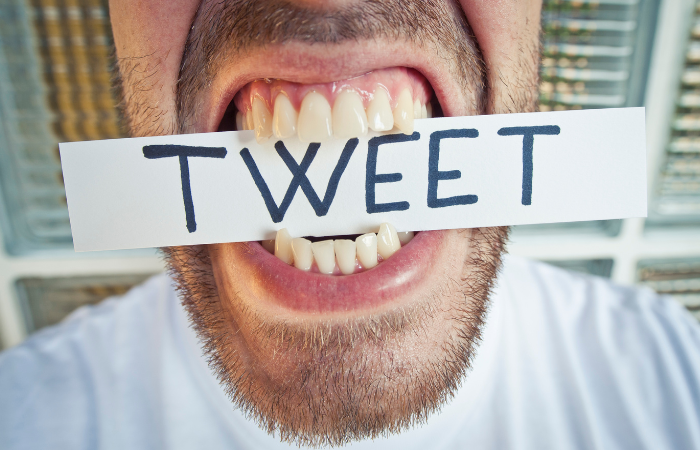
You are what you tweet
We all have our own preferences on how we consume news. For many of us millennials, we just scroll across from our home screen and get the daily Apple updates – and assume we’ve seen everything that’s important. For those of us of a ‘certain age’, we still swear by print media – whether that’s popping into your local shop to grab a copy of The Guardian, or pinching a Metro from the tube station.
Some of us fall a little short in understanding what we consume; I, for one, am guilty of this. Shortcuts get taken on my part – if anything is ‘breaking’, I’m straight on twitter. Twenty minutes later and I’m down a rabbit hole, scrolling through thread after thread of conspiracy theories, not realising I’m a million miles away from any ‘reputable’ source of news.
The importance of ‘proper’ broadcast media has arguably never been as important as it is today. With everything going off in the world, we owe it to ourselves to not just report the news morally, but to consume it morally as well.
Take the current crisis in Ukraine for example, a recent BBC article published details how false claims that the war is a ‘hoax’ have gone viral. Footage from a 2020 Ukrainian TV series has been lauded as current, real events, and reeled in thousands of believers on Twitter – all guilty of not checking the source of the news before falling for it, and, worse still, spreading it (though unknowingly).
It follows footage of a climate change demonstration in Austria, that was used in a ‘fake news’ Twitter article, misleading audiences into believing that Ukraine were ‘planting’ fake casualties to fool the media. I fell for this myself. And when I saw the intended context, and the actual source of the news, felt like a bit of a muppet. But that’s what you get for believing everything you see.
I used to consume my news on social media, before I began working within the broadcast PR industry, and understanding the importance of credible sources, honest news, and responsible consumption. It does tend to be a case of sticking to the ‘big guns’ when it comes to consuming accurate news – broadcasters like BBC and Sky are extremely credible, and can be relied upon – they get guests and experts on their shows (whether it’s TV or Radio) who are qualified, and know exactly what they’re talking about. BBC Radio 4’s Today Programme often has high-end guests with vast experiences in their fields, and would be a great starting point for anyone looking to consume ‘better’ news.
If it comes to stories or news that is backing up data, then keep an eye out for where the data is from – was it YouGov (if so, good!), or was it a poll on Twitter? These are little aspects of what we consume that can be very easily missed, but they often hold the key as to whether what we are believing is in fact ‘real’.
As convenient as they are, social media platforms present a somewhat slippery slope for somebody trying to educate themselves in current affairs, often leaving the consumer with egg on their face – as I’ve been a victim of recently. The sites are littered with ‘clickbait charlatans’ trying to distort the narrative, and you can make your own mind up whether they’re doing it to try and distract us, or just doing it for a rise.
‘Lazy consumption’ as I’ve dubbed it, is where someone consumes some form of news, from any given source, and treats it as gospel straight away. No facts or figures, no background checks on the source, just consuming, and sharing – and herein lies the problem. News has been given the platform to spread without any real ‘checks’, and can very quickly become a farcical game of inadvertently spreading misinformation.
So do a little research, make sure what you’re consuming is legitimate – and spare yourself the embarrassment of being told you’ve been ‘mugged off’. If what you’re reading, viewing or listening to has no credible source, make sure you do your homework before falling for it. And whatever you do don’t take No Context Brits for gospel.
William Coutts
Comments are closed.